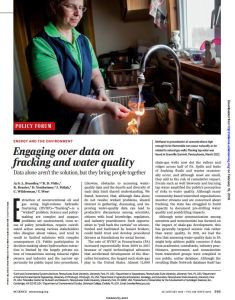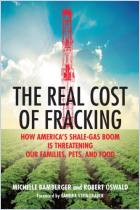加入 getAbstract 阅读摘要

加入 getAbstract 阅读摘要
S. L. Brantley, R. D. Vidic, K. Brasier, D. Yoxtheimer, J. Pollak, C. Wilderman and T. Wen
Engaging over Data on Fracking and Water Quality
Data alone aren’t the solution, but they bring people together
Science, 2018
看看什么内容?
Collaboratively compiling pollution data builds trust and cooperation among diverse participants.
Recommendation
Hydraulic fracturing produces not only gas and oil, but also concerns about surface and groundwater contamination. To address such concerns, Penn State geoscientist Susan Brantley and colleagues brought citizens and scientists together to develop a water quality database. The process of creating the database built valuable connections and a sense of community among the public and private parties involved. This article will inspire planners, policy makers, industry representatives and others who seek to build trust and collaboration in controversial circumstances.
Summary
About the Authors
Susan L. Brantley is a distinguished professor with the Earth and Environmental Systems Institute at Pennsylvania State University.


















Comment on this summary